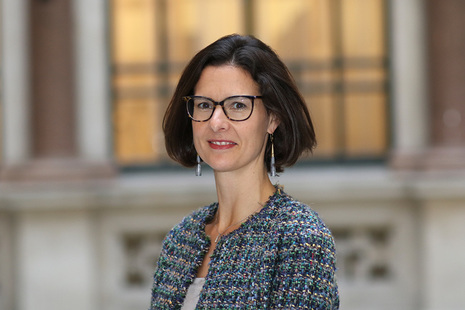The United Kingdom (UK) government says it will continue to increase its bilateral trade in Ghana – an investment which is currently more than £847million in key areas of the country’s economy – for the next decade.
Briefing the B&FT on a recent quest by the two countries to deepen trade and bring more investment into Ghana, High Commissioner of the UK to Ghana, Harriet Thompson, said the over-£800million investment in the country remains the top FDI from Europe and one of the biggest in this generation.
She said the two countries have renewed pacts to increase trade and investment and chart new paths which will consolidate their bilateral ambition.
In May this year, the UK-Ghana Business Council (UKGBC) met in London to discuss deepening trade ties between British and Ghanaian businesses.
At the conference, economic ties between the UK and Ghana were boosted as the UK’s Minister for Africa, Vicky Ford, and Minister for Trade Policy, Penny Mordaunt, co-chaired the discussions while Minister for Trade and Industry, Alan Kyerematen, led the senior delegation from Ghana.
The formation of the UK-Ghana Investors Group – made up of investors and business leaders with the aim of creating investment opportunities – was announced at the conference, and UK representatives welcomed recent deals in the gold supply chain and security sectors worth more than £100million.
The UK-GBC, according to Ms. Thompson, promotes bilateral relations and partnerships between Ghana’s private sector and UK counterparts.
She said the UK-Ghana Investor Group and British Investment International (BII) based in Ghana are currently providing funding totalling up to £8billion by 2024.
“Last year, the UK spent £1.5billion on its BII projects in Ghana, and now we have a country-director based in Accra with enormous knowledge of the investment climate here to channel this investment into Ghana and ensure the right investment is made,” she said.
At the event, the UK-Ghana digital conference was held with other discussions on taxation and revenue mobilisation systems, energy transition, agriculture, pharmaceuticals and others.
Ambassador Thompson envisages a stronger bilateral and investment growth between Ghana and the UK in the next decade.
Agriculture/agribusiness collaborations
Ms. Thompson said Ghana has appreciably performed in agriculture development with government prioritising the sector, but admitted that more investment is needed to scale-up – with potential to do more, including irrigation, mechanisation, among others.
The UK, she said, has made substantial investment into AgDevCo – which is a specialist investor in African agriculture in areas of irrigation – to enable the production of about 7000 hectares of onion, a commodity that sees more than 90 percent import into Ghana.
“Farms including Blue Skies and agribusinesses such as NICHE Cocoa have exported to UK through the support they have received from the UK government.”
Support for tax mobilisation
High Commissioner Thompson said the UK has a strong collaboration with the Ghana Revenue Authority in strengthening the country’s tax administration system.
“We have a strong deep partnership with the GRA to block loopholes in revenue mobilisation and tackling tax fraud through support for systems for prosecuting tax cases. The UK is happy with the improvement being made, and we hope to continue the partnership,” she said.
In the climate resilience agenda for Ghana and Africa as a whole, Madam Thompson is optimistic that the US$2billion grant-guarantee to the AfDB for climate adaptability-related projects shows the UK’s commitment to assisting countries navigate climate issues.
BFT





